Adam Matschulat // Formosa LP
- Availability:
※当店限定販売です
ブラジルの音響作家Adam Matschulatが、2023年3月にイギリスの実験レーベルCalling Cards Publishingから200部限定でリリースしたレコードです。
彼の故郷フォルモサで録音した、場所と家族についてのセルフドキュメンタリー・ミュージックコンクレート2曲を収録。DLコードとインサート付属。
以下、レーベルによる解説です。
Formosaは、作曲家Adam Matschulatのフルネームでの最初の主要作品であり、キッチン、教会、森、農場などの音をフィールドレコーディングし、ミュジック・コンクレートの構成で表現した深くパーソナルなアルバムです。
Matschulatはフォルモサについて、「ここは私が故郷と呼ぶ場所です」と言います。「夏休みはいつもここで過ごしていました。ここは私が安全だと感じる場所であり、私が困難だと感じていた都会での生活からの避難場所でした。このアルバムは、この美しい安全感と、この場所の魔法に対する尊敬の念を混ぜ合わせたものです。"
2つのサイドロングのコンポジションには、彼の家族間の親密な瞬間(母親が祖父にドイツ語を話す)、教会の歌声、家族のバーベキューの音など、フォルモサで録音されたものが含まれています。また、腐敗して土に還ることを暗示するハエの雲など、死生観の潜在的な暗示も含まれています。「このアルバムは、死について、そして森について、土地のサイクル、そしてその周りにいる私たちの小さな存在について書かれています」と彼は言います。「私の祖父は、私が知る限り最も強い男です。彼は親切で優しく、支えてくれるのですが、象のように働きました。80歳まで農作業のすべてをこなしていましたが、心臓が悪くなり、アコーディオンを持つことさえできなくなりました。彼は目的意識を失っていたのです。その感覚をレコーディングで探りたかったのです」。
このアルバムは、2面構成の長大な楽曲で構成されています。1枚目は、死と土地とのつながりを探るもので、場所と会話の縦糸と横糸を中心に構成されています。遠くから見ると、農作業中の農場のフィールドレコーディング、テーブルを囲んでの会話、夜の虫の音のベッドの上でアコーディオンが止まりながらゆらめくドイツ歌曲、一度テープの静電気で取り除かれた賛美歌、まるで覚えているかのように、あるいは心理的な離脱の音的シンボルのように見えます。よく聴くと、コラージュとエレクトロアコースティックの巧みな操作に気づかされます。
Matschulatの実家の農場は大西洋の原生林に囲まれており、木々が保護されているため、多くの録音はこの天蓋の下で行われたものです。Matschulatは子供の頃、まるで閾値を越えたかのような感覚を覚え、この環境に含まれる魔法と恐怖を感じたといいます。「フォルモサでは森の中に入ってレコーディングをしました。蛇や、いろいろな種類のものがいて、踏みたくないものがあります。フォルモサはブラジルの南部にあり、彼の母の一族は1880年代にプロイセンから移住してきました。彼の曾祖父はそこに教会を建て、今でもその教会は残っていて、信徒たちは1850年代のドイツの賛美歌集で歌っています。伝道師としての役割は、彼の祖父に受け継がれ、祖父はアコーディオンを弾きながら仕事をしました。
森に囲まれた敬虔な集落の家長として、農業を営んでいました。真っ暗闇の中で、幻覚を見るようになりました」。
Formosaの2曲目は人生についてで、スリーブノートにレシピが掲載されている、祖母が家族でバーベキューをするときに作った記憶が鮮明に残っているポテトサラダへの愛情という形で表現されています。この曲は、水の入ったボウルにゆで卵を入れるという不思議な音で始まり、電話が鳴り響き、シンク、皿、カトラリー、マヨネーズとジャガイモの音など、家庭の音へと変化していきます。食事ができるまで静かに時間が流れていく、平和な家庭の風景です。
Formosaに収録されている2つの作品は、家庭や家族との日常的なつながり、そしてより広くは生、死、帰属に関する概念についての瞑想です。このアルバムは、私たちの日常的な音の世界が持つ意味について、場所のテレロジー、安全や家についての心理的な地図帳を作成するものです。
レーベルその他作品はこちら /// Click here to see more Calling Cards Publishing releases available at Tobira.
-------------------------
Natinwide Tobira Exclusive
Includes DL code. Edition of 200.
Calling Cards Publishing:
"Formosa is composer Adam Matschulat's first major work under his own full name, a deeply personal album of field recordings capturing sounds from kitchens, churches, forests and farmyards in a compositional net of musique concrète that speaks directly to his family's history in the south of Brazil, exploring what it means to feel safe.
"It's where I call home," Matschulat says of Formosa. "It’s where we spent all our summer holidays. This was a place I felt safe, and was a refuge from life in the city, which I found hard. This album is a mixture of this beautiful sense of safety and also a sense of respect I have for the magic of the place."
The two side-long compositions contain recordings made in Formosa, from intimate moments between his family members – his mother speaking German to his grandfather – to church singing and the sound of family BBQs. It also contains latent suggestions of mortality – clouds of flies suggestive of rotting and returning to the earth. "This album is about mortality, but also the woods – the cycles of the land and our tiny existence around it,” he says. "My grandad is the strongest man I’ve ever known – he's kind, gentle, supportive but worked like an elephant. Until he was 80 he did all the farmwork, then his heart went and he couldn't even hold his accordion. He'd lost his sense of purpose. I wanted to explore that feeling in the recordings."
The album is made of two-side long distinct compositions. The first explores his connection between mortality and the land, structured around warp and weft of place and conversation. From a distance, the scene appears to be straightforward field recordings of a working farm; of conversations around a table; wobbling German songs with halting accordion on a bed of night-time insect sounds; of hymns once removed by tape static as if remembered, or as a sonic symbol of psychological detachment. Closer listening reveals astute collaging and electro-acoustic manipulations.
Matschulat’s family’s farm is surrounded by virgin Atlantic wood, where the trees are protected, and many of the recordings are from under this canopy. Matschulat remembers as a child feeling as if he had crossed a threshold, and the magic and fear contained in this environment. "For Formosa I went and recorded in the forest," he says, "but I've never been there at night. There's stuff you don't want to step on there – snakes and all sorts. I got myself completely wrapped up so I didn't get bitten to shreds, Formosa is in the South of Brazil, where his mother's family emigrated from Prussia in the 1880s. His great-great grandfather built a church there, which still stands and where the congregation still sing from 1850s German hymn books. The role of preacher passed down in the family to his grandfather, who played accordion and worked his
farm as the patriarch of what remains a pious community surrounded by forest. and crossed over into the forest at about 3am, and stood there recording for a long time. In the pitch black – and it is completely dark in there – I began to hallucinate."
The second piece on Formosa is about life, in the form of love for his grandmother’s potato salad, the recipe for which is included in the sleeve notes and which he has vivid memories of his grandmother making for family BBQs. The piece opens with a curious rattling sound: boiled eggs in a bowl of water, giving way to a phone ringing off the hook and the sounds of a household: of sinks, plates and cutlery, and the close mic’d squelching of mayonnaise and potatoes. It is a peaceful domestic scene, where time passes quietly in the production of a meal.
The two pieces on Formosa are meditations on everyday connections to home and family, and more broadly on notions of life, death and belonging. It is an album about the significance of our everyday sonic worlds that creates a teleology of place, and a psychological cartography of safety and home. "
Artist : Adam Matschulat
Label : Calling Cards Publishing
※当店限定販売です
ブラジルの音響作家Adam Matschulatが、2023年3月にイギリスの実験レーベルCalling Cards Publishingから200部限定でリリースしたレコードです。
彼の故郷フォルモサで録音した、場所と家族についてのセルフドキュメンタリー・ミュージックコンクレート2曲を収録。DLコードとインサート付属。
以下、レーベルによる解説です。
Formosaは、作曲家Adam Matschulatのフルネームでの最初の主要作品であり、キッチン、教会、森、農場などの音をフィールドレコーディングし、ミュジック・コンクレートの構成で表現した深くパーソナルなアルバムです。
Matschulatはフォルモサについて、「ここは私が故郷と呼ぶ場所です」と言います。「夏休みはいつもここで過ごしていました。ここは私が安全だと感じる場所であり、私が困難だと感じていた都会での生活からの避難場所でした。このアルバムは、この美しい安全感と、この場所の魔法に対する尊敬の念を混ぜ合わせたものです。"
2つのサイドロングのコンポジションには、彼の家族間の親密な瞬間(母親が祖父にドイツ語を話す)、教会の歌声、家族のバーベキューの音など、フォルモサで録音されたものが含まれています。また、腐敗して土に還ることを暗示するハエの雲など、死生観の潜在的な暗示も含まれています。「このアルバムは、死について、そして森について、土地のサイクル、そしてその周りにいる私たちの小さな存在について書かれています」と彼は言います。「私の祖父は、私が知る限り最も強い男です。彼は親切で優しく、支えてくれるのですが、象のように働きました。80歳まで農作業のすべてをこなしていましたが、心臓が悪くなり、アコーディオンを持つことさえできなくなりました。彼は目的意識を失っていたのです。その感覚をレコーディングで探りたかったのです」。
このアルバムは、2面構成の長大な楽曲で構成されています。1枚目は、死と土地とのつながりを探るもので、場所と会話の縦糸と横糸を中心に構成されています。遠くから見ると、農作業中の農場のフィールドレコーディング、テーブルを囲んでの会話、夜の虫の音のベッドの上でアコーディオンが止まりながらゆらめくドイツ歌曲、一度テープの静電気で取り除かれた賛美歌、まるで覚えているかのように、あるいは心理的な離脱の音的シンボルのように見えます。よく聴くと、コラージュとエレクトロアコースティックの巧みな操作に気づかされます。
Matschulatの実家の農場は大西洋の原生林に囲まれており、木々が保護されているため、多くの録音はこの天蓋の下で行われたものです。Matschulatは子供の頃、まるで閾値を越えたかのような感覚を覚え、この環境に含まれる魔法と恐怖を感じたといいます。「フォルモサでは森の中に入ってレコーディングをしました。蛇や、いろいろな種類のものがいて、踏みたくないものがあります。フォルモサはブラジルの南部にあり、彼の母の一族は1880年代にプロイセンから移住してきました。彼の曾祖父はそこに教会を建て、今でもその教会は残っていて、信徒たちは1850年代のドイツの賛美歌集で歌っています。伝道師としての役割は、彼の祖父に受け継がれ、祖父はアコーディオンを弾きながら仕事をしました。
森に囲まれた敬虔な集落の家長として、農業を営んでいました。真っ暗闇の中で、幻覚を見るようになりました」。
Formosaの2曲目は人生についてで、スリーブノートにレシピが掲載されている、祖母が家族でバーベキューをするときに作った記憶が鮮明に残っているポテトサラダへの愛情という形で表現されています。この曲は、水の入ったボウルにゆで卵を入れるという不思議な音で始まり、電話が鳴り響き、シンク、皿、カトラリー、マヨネーズとジャガイモの音など、家庭の音へと変化していきます。食事ができるまで静かに時間が流れていく、平和な家庭の風景です。
Formosaに収録されている2つの作品は、家庭や家族との日常的なつながり、そしてより広くは生、死、帰属に関する概念についての瞑想です。このアルバムは、私たちの日常的な音の世界が持つ意味について、場所のテレロジー、安全や家についての心理的な地図帳を作成するものです。
レーベルその他作品はこちら /// Click here to see more Calling Cards Publishing releases available at Tobira.
-------------------------
Natinwide Tobira Exclusive
Includes DL code. Edition of 200.
Calling Cards Publishing:
"Formosa is composer Adam Matschulat's first major work under his own full name, a deeply personal album of field recordings capturing sounds from kitchens, churches, forests and farmyards in a compositional net of musique concrète that speaks directly to his family's history in the south of Brazil, exploring what it means to feel safe.
"It's where I call home," Matschulat says of Formosa. "It’s where we spent all our summer holidays. This was a place I felt safe, and was a refuge from life in the city, which I found hard. This album is a mixture of this beautiful sense of safety and also a sense of respect I have for the magic of the place."
The two side-long compositions contain recordings made in Formosa, from intimate moments between his family members – his mother speaking German to his grandfather – to church singing and the sound of family BBQs. It also contains latent suggestions of mortality – clouds of flies suggestive of rotting and returning to the earth. "This album is about mortality, but also the woods – the cycles of the land and our tiny existence around it,” he says. "My grandad is the strongest man I’ve ever known – he's kind, gentle, supportive but worked like an elephant. Until he was 80 he did all the farmwork, then his heart went and he couldn't even hold his accordion. He'd lost his sense of purpose. I wanted to explore that feeling in the recordings."
The album is made of two-side long distinct compositions. The first explores his connection between mortality and the land, structured around warp and weft of place and conversation. From a distance, the scene appears to be straightforward field recordings of a working farm; of conversations around a table; wobbling German songs with halting accordion on a bed of night-time insect sounds; of hymns once removed by tape static as if remembered, or as a sonic symbol of psychological detachment. Closer listening reveals astute collaging and electro-acoustic manipulations.
Matschulat’s family’s farm is surrounded by virgin Atlantic wood, where the trees are protected, and many of the recordings are from under this canopy. Matschulat remembers as a child feeling as if he had crossed a threshold, and the magic and fear contained in this environment. "For Formosa I went and recorded in the forest," he says, "but I've never been there at night. There's stuff you don't want to step on there – snakes and all sorts. I got myself completely wrapped up so I didn't get bitten to shreds, Formosa is in the South of Brazil, where his mother's family emigrated from Prussia in the 1880s. His great-great grandfather built a church there, which still stands and where the congregation still sing from 1850s German hymn books. The role of preacher passed down in the family to his grandfather, who played accordion and worked his
farm as the patriarch of what remains a pious community surrounded by forest. and crossed over into the forest at about 3am, and stood there recording for a long time. In the pitch black – and it is completely dark in there – I began to hallucinate."
The second piece on Formosa is about life, in the form of love for his grandmother’s potato salad, the recipe for which is included in the sleeve notes and which he has vivid memories of his grandmother making for family BBQs. The piece opens with a curious rattling sound: boiled eggs in a bowl of water, giving way to a phone ringing off the hook and the sounds of a household: of sinks, plates and cutlery, and the close mic’d squelching of mayonnaise and potatoes. It is a peaceful domestic scene, where time passes quietly in the production of a meal.
The two pieces on Formosa are meditations on everyday connections to home and family, and more broadly on notions of life, death and belonging. It is an album about the significance of our everyday sonic worlds that creates a teleology of place, and a psychological cartography of safety and home. "
Artist : Adam Matschulat
Label : Calling Cards Publishing
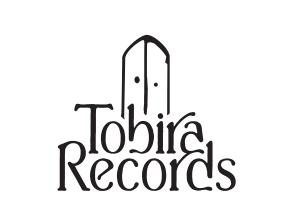
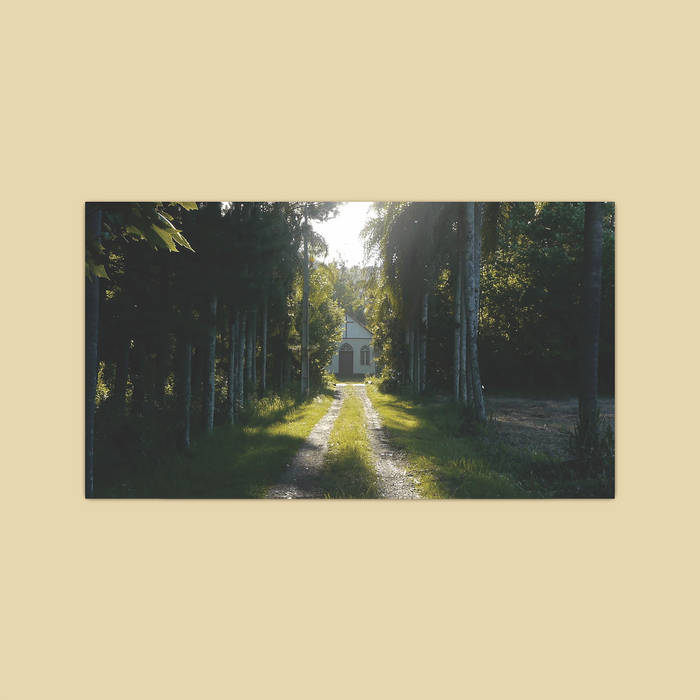
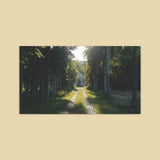
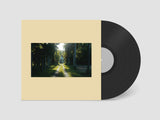
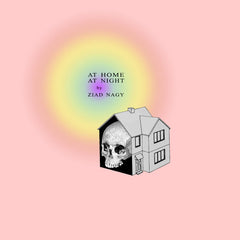
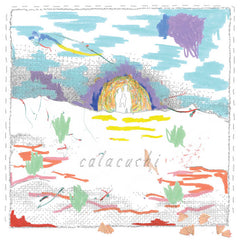
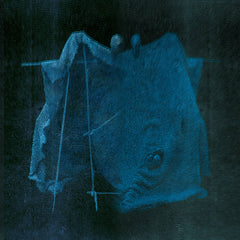
![Mary Hurrell // FORMATIONS LP [COLOR]](http://tobirarecords.com/cdn/shop/files/fo1_3050278c-87af-4460-8d81-c8b8b0d8f800_medium.jpg?v=1724396801)